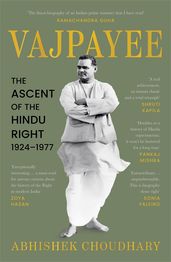Synopsis
Believer’s Dilemma concludes Abhishek Choudhary’s landmark two-part study of Atal Behari Vajpayee (1924–2018), the RSS propagandist who established himself as an imaginative moderate, drawing the Hindu Right from the fringes to displace Congress as the natural party of power.
This magisterial second volume combines new archival documents with revealing interviews to present an unsentimental history of India’s ongoing political moment, beginning with the short-lived Janata coalition and the Vajpayee–Morarji Desai tussle to steer foreign policy; Mrs Gandhi’s ad-hocism in Assam, Punjab and Kashmir; Rajiv’s cynical turn toward the Hindu vote; Vajpayee’s failure to secularize the newborn BJP; the Sangh Parivar’s meticulous plan to raze the Babri, and much more. Choudhary traces these machinations of the previous half-century to cast fresh light on major events from Vajpayee’s term in office (1998–2004), including his desperation to conduct nuclear tests; his cold pragmatism and heartbreak in negotiating with Pakistan and China; his wide range of emotional strengths, which allowed him to manage an unwieldy thirteen-party coalition and turn India into a multi-party democracy; his role in propping India up as a potential superpower and embedding capitalist aspiration into its socio-political imagination.
Mapping the evolution of the Sangh Parivar, this book reveals a deeper pattern in Vajpayee’s character: his reflexive loyalty to his ideological family in moments of crisis – be it the 1983 Assam riots, the 1992 Babri aftermath, the 2002 Gujarat pogrom, or his tragic last public appearance in 2008, when the stroke-battered patriarch voted against the Indo-US nuclear deal he had earlier helped seed.
A decade in the making, Believer’s Dilemma is an original and psychologically insightful take on the Hindu Right and its first prime minister.


